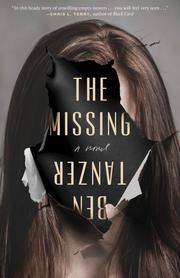Some crises bring families closer together; others shatter them. The latter is the case in Tanzer’s new novel, which is pitched somewhere between Tom Perrotta’s suburban ennui and Ian McEwan’s tales of psychological turmoil. Narrated in alternating chapters by Hannah and Gabriel, the novel opens in the wake of their teenage daughter, Christa, going missing with her slightly older boyfriend, Josh. Soon enough, we learn that Hannah and Gabriel have been in a relationship since they were both in high school. Theirs is a close-knit community; John, the police officer on the case, is a former classmate of theirs. Early in the novel, the couple ponders what might have made Christa leave; Gabriel thinks, “We don’t know what we did to cause this. What clues we missed.” But as the months pass, the long-standing fissures in the marriage become more apparent. By the novel’s halfway point, Hannah opts for candor, thinking of Gabriel, “I kind of hate him and I’ve hated him for so long now.” She confides in her father’s fiancee about her lack of experience outside her marriage; throughout, there are hints that she could be bi- or pansexual but never had an opportunity to explore those feelings. A confession Gabriel makes late in the book at an AA meeting suggests he’s at a similar state of arrested development. By the novel’s final third, both Gabriel and Hannah are seeking escapes, whether physically or mentally. As Gabriel phrases it, “We are our memories, pain, and habits, and we’re destined to wallow in and repeat them, unless we can become unstuck, and find a way out.”

